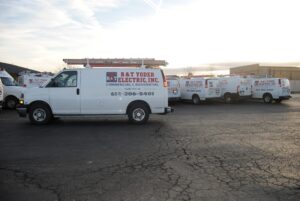
Have you ever thought about backup generators and how much they may cost? We only start thinking about generators when hurricane season comes around or any other type of storms that will probably help you get through the storms and you wont have to loose power for it. Well look no further, here are the prices for home back up generators.
A home generator produces electricity when the power supplied from your electric utility is out. There are many types of generators, but they generally fall into four different categories- Home standby generators are the most expensive type of home generator. But if the power goes out, it will automatically kick in. Portable generators are much cheaper, and they run on gasoline, diesel or natural gas. If this generator is used improperly then carbon monoxide poisoning is a risk, and accidents can occur if the generator is set up too close to a home.
Inverter generators produce electricity in an alternating current, which is inverted to direct current and then inverts again back to AC instead of running on gas. It’s considered a more environmentally friendly type of home generator, and it operates more quietly than a portable generator. Portable power stations are also known as solar generators, though not all portable power stations involve solar energy. These are powered by batteries. Home generators can range from $200 to $20,000, and that doesn’t include installation.
The national average cost to purchase and install a whole house generator is $10,000 to $20,000. With that said, you can find home generators for as low as $200. One-thousand-watt generators can be purchased for as little as $200, while 10,000-watt units will cost you close to $2,000. A 5,000-watt unit can be purchased for $500 to $700. The cheapest generators probably aren’t really meant for your home but more like something you would take on a camping trip.
There are also house generators that are made up of different types of fuel and each one range in different costs. The type of fuel a generator uses affects the total cost in two ways. First, the price of the unit itself is affected by the fuel type. Second, the cost of running the generator will vary based on the cost of that particular fuel at the time that you need it. The first type of generator is a natural gas generator that is powered by natural gas are more expensive at the time of purchase than gasoline generators.
They average between $2,000 and $21,000 and there’s little fuel waste because the generator uses fuel drawn directly from the utility when it needs it. While the natural gas prices are usually a bit lower than gasoline, a natural gas generator uses more gas to power your home than other types. A diesel gas generator costs between $3,000 and $20,000. A diesel generator is usually a larger machine that can power a whole house. It is exceptionally efficient, diesel-powered generators are more cost effective as they get larger.
Liquid propane generators is a clean-burning liquid propane that can be stored indefinitely (if it’s stored properly). It can be a great option if you already have a liquid propane contract and a large tank to use with other appliances, such as a dryer or stove. Liquid propane generators can be a small portable generator or a larger standby unit and it can cost between $600 and $21,000. If you don’t already have a large tank or a contractor, you’ll need to store many smaller gas cans to make sure you have power when you need it. Liquid propane generators are not as cost effective as other models.
Gasoline generators are usually the least expensive option. They are simple engines that use gasoline to produce electricity. Gasoline is readily available in most parts of the country, which makes this a popular choice. However, it’s important to note that gasoline has a short lifespan and may need to be discarded at a cost when it has gotten too old. Gas-powered generators are smaller, less powerful options that are portable and require a manual start, costing between $500 and $3,000.
As you can see, home generators are pretty pricey but you never know when you will need it the most. Make sure to do your research before so you don’t spend too much money on it!







